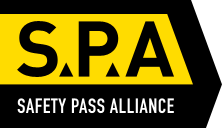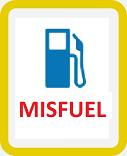Date:11 September 2018
A logistics company has been fined after a worker died when he was trapped between a trailer and his vehicle.
Dudley Magistrates’ Court heard how, on 22 January 2016, a Tuffnells Parcels Express Limited employee was fatally injured whilst attempting to attach a trailer to his vehicle. The trailer was parked upon a slight slope, which was enough to allow it to roll forward trapping the employee.
An investigation by the Health and Safety Executive (HSE) into the incident found safety management arrangements for coupling trailers to vehicles failed to take account of the slope.
Tuffnells Parcels Express Limited of Wallows Industrial Estate, Dudley pleaded guilty to breaching Section 2 (1) of the Health and Safety at Work Act 1974 and has been fined £1.5 million and ordered to pay costs of £32,823.35
Speaking after the hearing, HSE inspector Karl Raw said:
“Had Tuffnells taken the slope into account, simple measures could have been taken that would have prevented this incident. Workplace transport remains a high risk environment, and this case serves as a reminder to industry that assessments of sites should be specific and identify the hazards unique to each yard. It is also a reminder that the slope a vehicle is parked on does not need to be steep for incidents to occur.
“This was a tragic and wholly avoidable incident, caused by the failure of the company to adopt robust management action in both planning and monitoring of the workplace and workplace actions at this site.”
Notes to Editors:
- The Health and Safety Executive (HSE) is Britain’s national regulator for workplace health and safety. We prevent work-related death, injury and ill health through regulatory actions that range from influencing behaviours across whole industry sectors through to targeted interventions on individual businesses. These activities are supported by globally recognised scientific expertise. hse.gov.uk[1]
- More about the legislation referred to in this case can be found at: legislation.gov.uk/
 [2]
[2] - HSE news releases are available at http://press.hse.gov.uk[3]
- Further information about health and safety in workplace transport can be found at: http://www.hse.gov.uk/workplacetransport/driving.htm





















